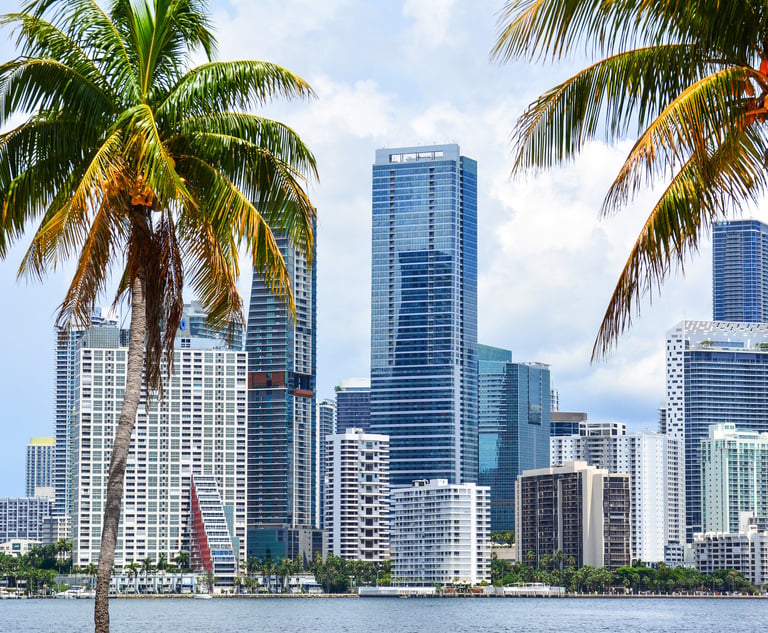The COVID-19 crisis presents significant challenges for Africa’s biggest corporate law firms, whose revenues have in recent times been generated largely by inbound work, including major cross-border M&A deals.
But the continent faces an epidemic of unreported COVID-19 cases, which has sent ripples of uncertainty throughout the region. Peter Cromberge, senior reporter for southern and eastern Africa at Mergermarket, says the recent slump in oil prices, in particular, does not bode well for many of the African markets which have oil-based economies.
It now falls to Africa’s top law firms to leverage new technologies and historic expertise of the natural resource-rich continent to ensure it can help businesses confront an unprecedented challenge slowly looming into view.
So, much like firms in other parts of the world, law firms across the continent are taking measures to mitigate risk and preserve cash flow, including suspending staff salary increases and payments of profit distributions to equity partners.
Pieter Steyn, director of South African law firm Werksmans Attorneys, says other measures that merit consideration include introducing pay cuts, lay offs and asking partners for capital contributions.
But having scaled up in accordance with the influx of foreign direct investment over the last two decades, many in the market suggest Africa’s top firms have plenty of work to do, even as the pandemic takes hold.
“One cannot paint the whole of the continent with one brush.”
Cromberge for one believes that South Africa will continue to be the M&A engine for deals on the continent, particularly given the number of large corporates that are based there.
“Given the economic headwinds in the country, combined with the unfolding COVID-19 pandemic, South African M&A will likely be dominated by companies seeking to restructure their portfolios or recapitalize their balance sheets.”
This could include the sale of non-core assets in order to pay down borrowings, and could present an opportunity to bidders with a long-term view on the oil price to acquire distressed assets or marginal assets, Cromberge says.
Still, there is a lingering threat that the pandemic could undo the good work of the past couple of decades. Thus far, Africa has baffled scientists by not succumbing to the high rate of COVID-19 infections that was expected on the continent, given its widespread poverty and crowded living conditions of a large percentage of the population. However, some suggest this is in part due to an epidemic of under-reporting across the continent.
As the uncertainty of COVID-19 slowly grips the continent, Africa’s diverse economies are being tested like never before, and it remains to be seen whether the systems developed over the last 20 years can withstand the impending strain.
South Africa growth
On the back of bolstered infrastructure and investment mechanisms, in recent years, the South African market has become one of two of the continent’s leading economies – the other being Nigeria – driven in large part by an increase in cross-border activity, growth potential, increasingly sophisticated telecommunications, and a resultant trend of higher GDP.
And despite some African countries being seen historically as high-risk for conducting business, the potential rewards are hard to ignore, says Christo Els, senior partner at Webber Wentzel.
“Interest in African markets in general is cyclical depending on the current level of risk appetite at the time,” he explains.
Africa is often viewed as being chaotic, complex, unsophisticated, unstable and prone to corruption. But that is certainly not true of all countries, says Julius Oosthuizen, joint head of ENSafrica’s corporate commercial department.
“One cannot paint the whole of the continent with one brush.”
Africa-specific knowledge
Africa’s countries are developing economies, none more so than South Africa’s, with investment coming from the world over, particularly China. And it falls to South African law firms that are familiar with the African regulatory and political landscape to assist companies new to the continent to navigate complexities, says Bowmans’ chairman Robert Legh.
“Through our local knowledge and experience and relationships on the ground, we can help to expedite processes,” he says.
Some 25% of Bowmans’ revenues are currently generated from its African business, and are growing, he says.
According to Mergermarket, M&A deals of a total of $22.2 billion were concluded in Africa in 2019, a slight increase in value from $20.4 billion in 2018, although the volume was down from 268 to 249 deals.
When conducting due diligence with M&A in Africa it is important to understand the regulatory landscape both during the deal process and how will it impact on business operations going forward, says ENSafrica’s Oosthuizen.
Other African countries are following the lead of South Africa’s increasingly stringent Black Economic Empowerment (BEE) regulations. This trend has increased in countries like Namibia, Nigeria, Zambia, and Tanzania in the past three years, particularly in the telecommunications, mining and banking industries that require licences, says Webber Wentzel’s Els.
“There is an increasing requirement for indigenous participation in M&A transactions, in some cases legislated and in others not, and this could suddenly crop up in the middle of a transaction.”
African countries also tend to have a higher growth rate than developed economies, some as high as 8% to 10%. Four of the fastest growing economies in the world in 2019 were in Africa: Cote d’Ivoire, Ethiopia, Ghana, and Rwanda, according to the World Bank.
“This requires local knowledge or the assistance of a local counsel in each jurisdiction who has a deep understanding of the local regulations and how they are applied.”
Leapfrogging technology
Spurred by the proliferation of mobile communication across the continent, Africa’s ‘leapfrogging technologies’ are thriving, Bowmans’ Legh suggests. These are technologies designed to expedite development in otherwise underdeveloped regions.
An example is the mobile banking application Mpesa, a money transfer, financing and microfinancing service, launched in 2007 by Vodafone-owned Safaricom.
Mpesa has since been adopted by 37 million customers across Africa and its use has expanded to South Africa, Afghanistan, India, Romania and Albania.
Many African countries have decrepit fixed line telecommunications infrastructure, but their mobile network services and applications are world class, efficient and affordable.
“Almost all adults in urban areas have mobile phones, which are used as a primary personal and business communication tool,” says Legh.
Ease of doing business
However, in addition to uncertainty brought on by he pandemic, businesses often face multiple, awkward political barriers, depending on the country they are operating in.
“For example, Mauritius and Kenya are relatively easy to do business in, and Rwanda has low barriers to entry, while Tanzania is not very pro-business and Uganda is somewhere in between,” says Legh.
Rwanda and Kenya are among the easiest African countries to do business in, largely because they have more efficient regulations, and the most challenging include Angola, Nigeria, and Tanzania, says ENSafrica’s Oosthuzen.
Over the past two years the Tanzanian government has actively discouraged foreign companies from doing business in the country in favour of indigenous participation.
This caused ENSafrica to close its offices in the country’s largest city, Dar Es-Salaam, in late 2019.
“A foreign company is likely to meet resistance if it tries to force its corporate governance standards on local business entities in a less sophisticated market, for instance,” says Oosthuizen.
Nevertheless, certain of these economies are showing signs of liberalization and deregulation, which has over the years afforded opportunities to those law firms willing to enter lesser developed markets and seize opportunities.
“We are working with clients in Ghana West Africa and in Ethiopia in East Africa, the latter of which is showing strong growth as its economy opens up,” says Webber Wentzel’s Els.
Free trade
Most African countries have signed the ambitious African Continental Free Trade Area agreement, which seeks to facilitate the easy flow of goods and services across the continent.
“The framework is in place, but the treaties will need to be ratified by parliament in each country and tariffs agreed,” says Bowmans’ Legh. It is hoped that the African Continental Free Trade Area will help to harmonize tariffs and stimulate internal cross-border trading across the continent,” says Steyn, who is also chairman of Lex Africa—Africa’s largest alliance of leading law firms.
With economies liberalizing, telecommunications and tech flourishing, and historic infrastructure deficiencies being addressed, the deep and specialised knowledge of African law firms across the continent is now more critical than ever in helping companies and business leaders face a COVID-19 crisis that for now still seems ominously abstract.
NOT FOR REPRINT
© 2024 ALM Global, LLC, All Rights Reserved. Request academic re-use from www.copyright.com. All other uses, submit a request to [email protected]. For more information visit Asset & Logo Licensing.









